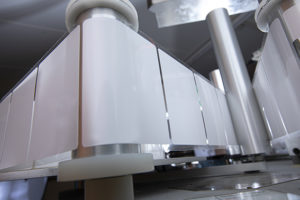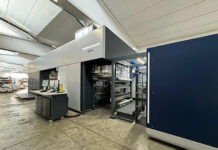 Avery Dennison has taken an important step towards supplying a recycled polypropylene (rPP) label material, collaborating with SABIC in the TRUCIRCLE™ initiative, which encompasses circular materials and technologies to enable product manufacturers to reach their sustainability goals.
Avery Dennison has taken an important step towards supplying a recycled polypropylene (rPP) label material, collaborating with SABIC in the TRUCIRCLE™ initiative, which encompasses circular materials and technologies to enable product manufacturers to reach their sustainability goals.
“Label converters will soon be able to expand further the range of applications where a sustainable material is a viable option. Our pilot project will make this material available during 2020. We have come a very long way with adding recycled- and sustainably-sourced products to our portfolio, and polypropylene is a very important addition”, said Rob Groen in ‘t Wout, senior marketing manager film EU for Avery Dennison Label and Packaging Materials.
The new material is made via feedstock recycling (pyrolysis) of mixed post-consumer plastics waste. The full value chain – the film supplier, Avery Dennison, the converter, and brand owner – need to be ISCC* chain-of-custody-accredited to use resin from SABIC to make the rPP facestock, so that the material is certified as a ‘circular polymer solution’.
Polypropylene labels are widely used in food, cosmetics, and a variety of other segments, so improvements in this area can make a major contribution to sustainability. The new Avery Dennison material is food-approved, and it offers the same properties as standard PP film. In contrast to mechanically recycled materials (which has the shortest recycling chain, but can often involve compromising on aesthetics and food compliance), the chemical recycling process used to make rPP means it has the same characteristics as conventional material.
Mariya Nedelcheva, product manager rigid film EMEA: “Some plastics such as PET are already collected with high rates, with a clean stream of high-quality material that can be recycled mechanically very well. There is not yet such a collection stream for PP, so washing and mechanically recycling in order to make new PP film is still challenging. Among all the applications for polypropylene, the bi-oriented PolyPropylene (BOPP) used for labels is the most challenging to make from mechanical recycling. This chemical recycling process for PP is an important step forward for the labelling industry, and we’re very proud to be pioneering such an important improvement – bringing to market a sustainable PP material that is food approved, and both converts and prints well”.






















